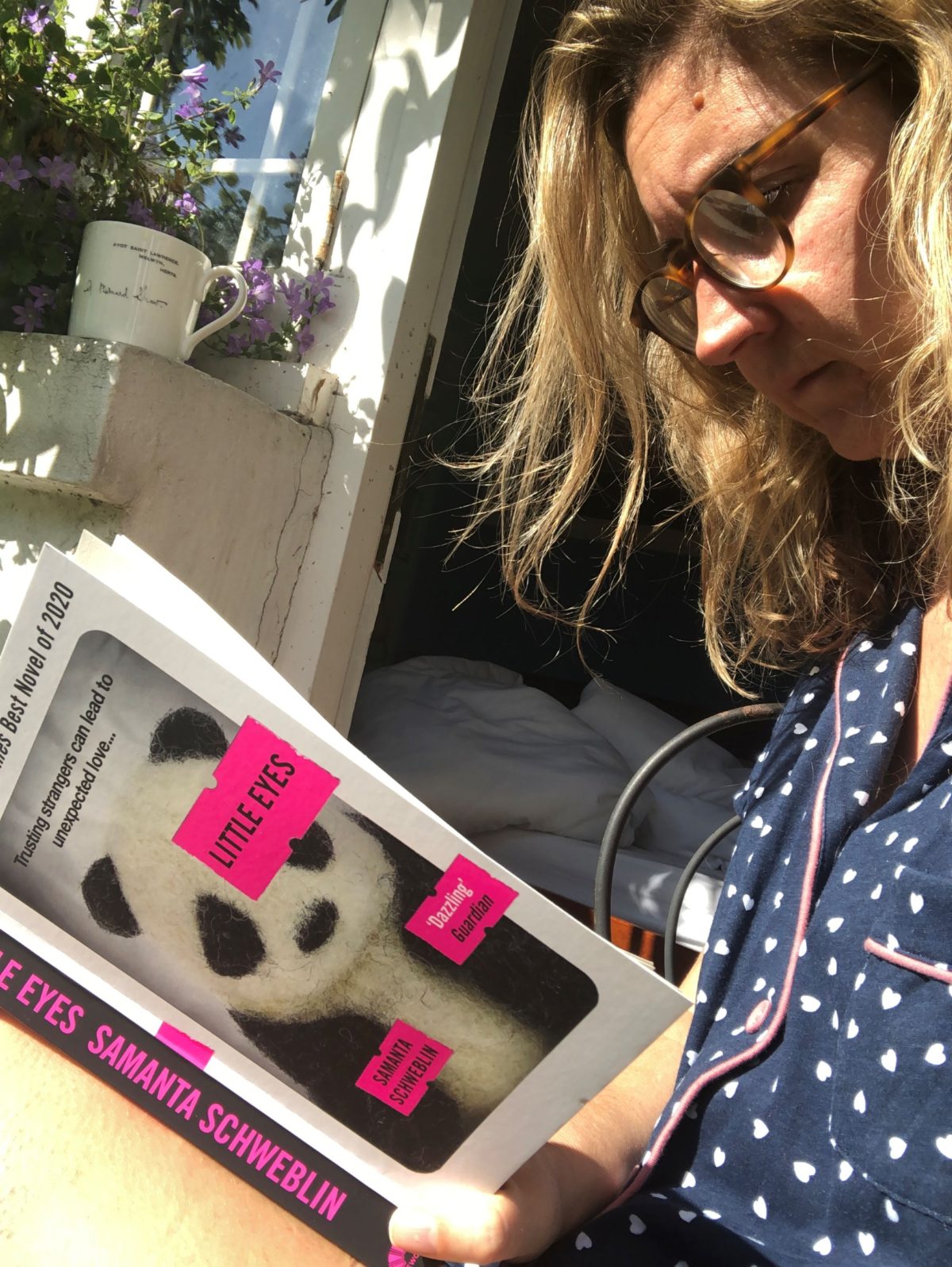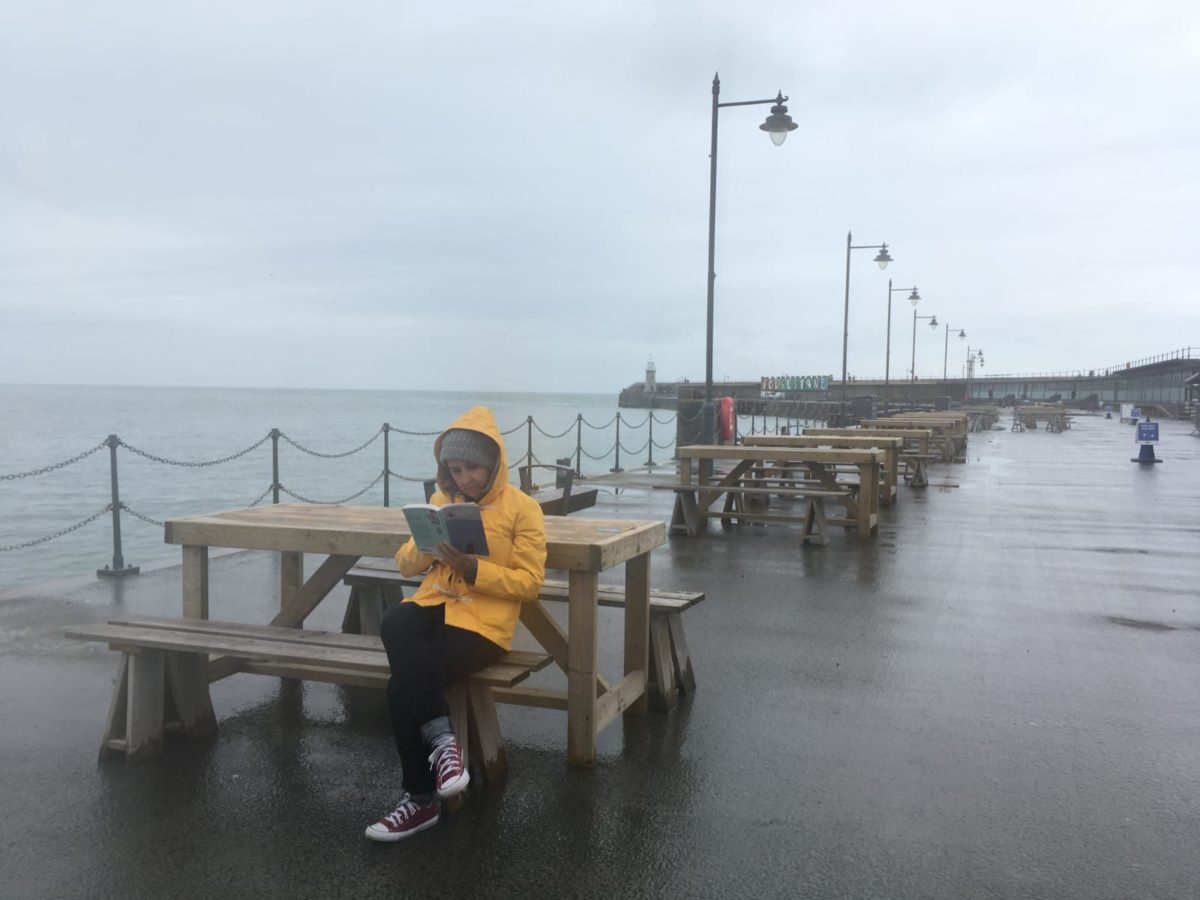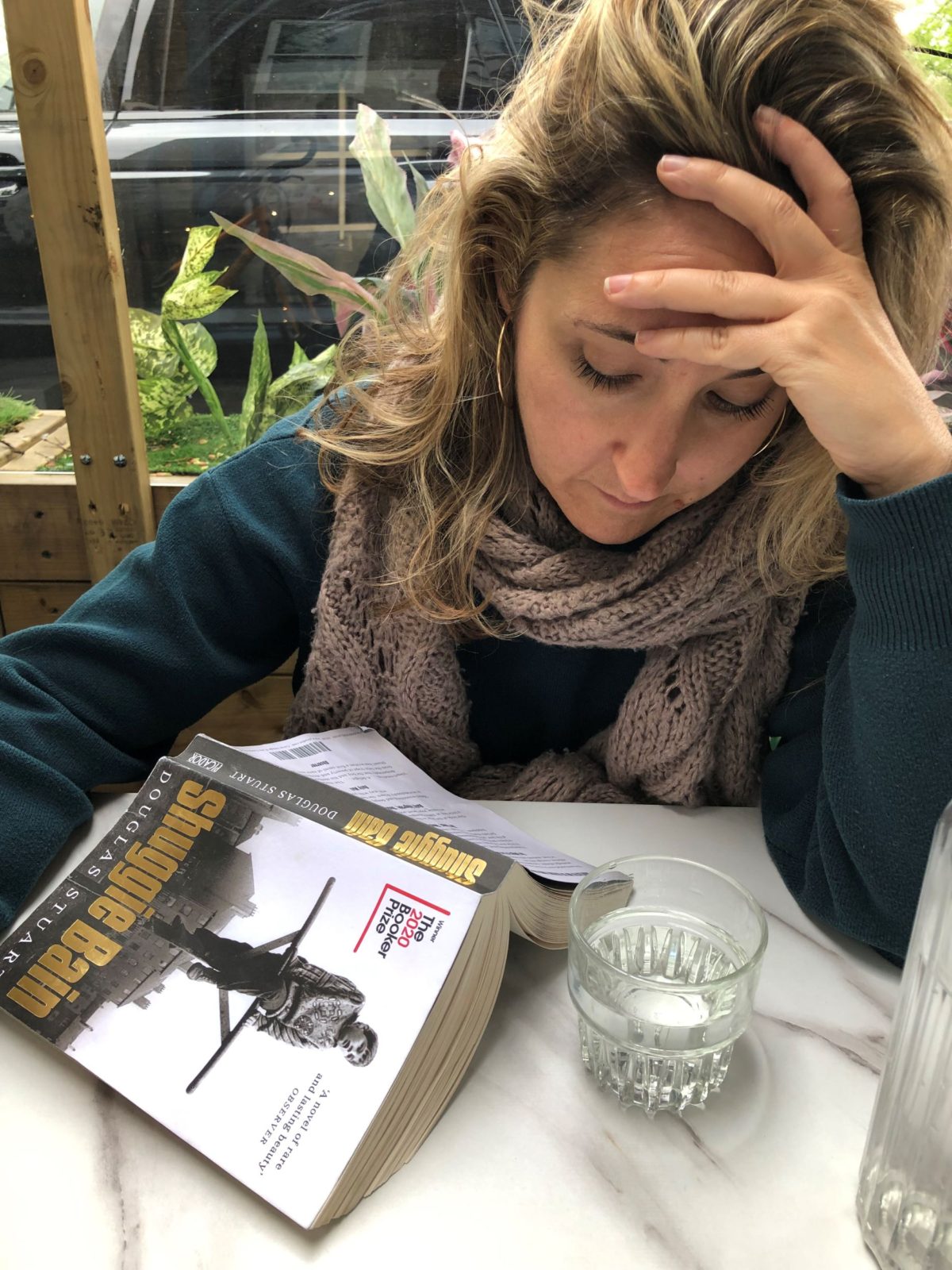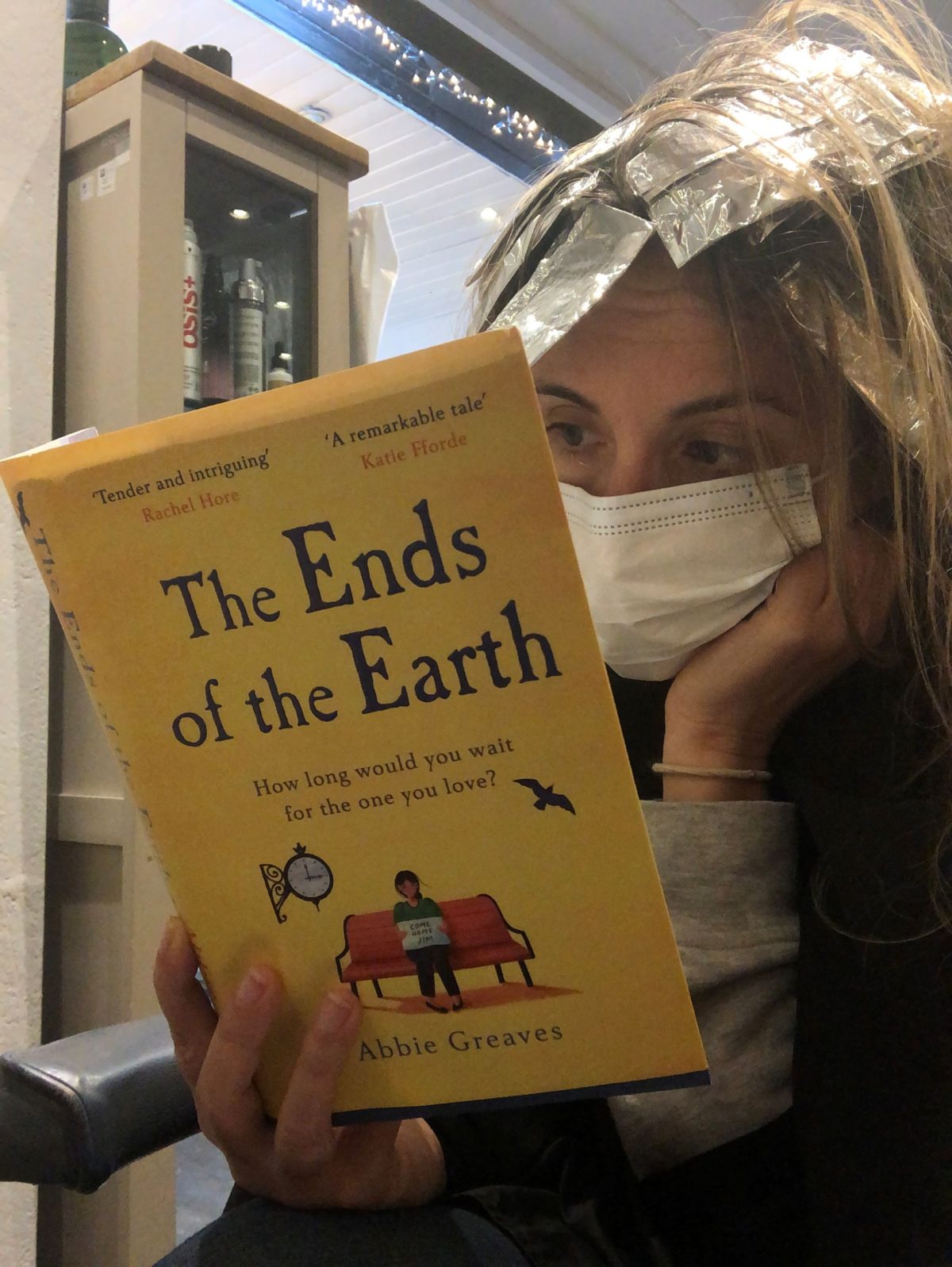Here is a fantastically wonderful book with an amazing twist, so I recommend stopping reading this post right now and getting the book, because this is going to be full of SPOILERS.
The book begins with a woman picking up hitchhikers. This is so abnormal in the modern world that you can only assume she must be a serial killer. The hitchhikers do indeed die, and there is an extremely clever, slow reveal as to why. SHE’S AN ALIEN AND SHE’S ABDUCTING THEM AS A CULINARY DELICACY FOR HER HOME PLANET.
You’d think, based on this, it would be a science fiction story. It’s not at all. Mostly you are in head of the woman. Like many non-aliens, she hates her job, hates her boss, has a crush on someone who isn’t interested. At one point, some of the captured hitchhikers escape. They have been with the aliens for a month:
Removed from the warmth of its pen, it was pathetically unfit for the environment, bleeding from a hundred scratches, pinky-blue with cold. It had the typical look of a monthling, its shaved nub of a head nestled like a bud atop the disproportionately massive body. Its empty scrotal sac dangled like a pale oak leaf under its dark acorn of a penis. A thin stream of blueish-black diarrhoea clattered onto the ground between its legs. Its fists swept the air jerkily. Its mouth opened wide to show its cored molars and the docked stub of its tongue.
‘Ng-ng-ng-ng-gh!’ it cried.
She has occasional moral scruples about how they are treating the humans. But as she explains at one point, they “couldn’t siuwil, they couldn’t mesnishtil, they had no concept of slan . . . And when you looked into their glazed little eyes, you could understand why.” It’s clearly, among many, many, other things, a meditation about vegetarianism, and how we train ourselves to not have compassion. And not just for animals, but for sweatshop employees, for children affected by air pollution, and all the other things that make the world go round.
At one point we do visit the processing plant, where one of the recently de-tongued hitchhikers writes the word MERCY on the ground. The alien pretends to a wealthy visitor that she does not know what it means, as she does not want do-gooders getting hysterical. And indeed there is no such word in the alien language in any case. Later, when things go wrong with a hitchhiker, and he is trying to rape her (luckily she lacks human genitals), she is terrified, and tries to remember the word. “Murky!” she screams. It’s not everyday you laugh at a rape scene.
The aliens’ home planet is some kind of toxic stew, where oxygen and water are expensive and must be fought for. Thus, much of the book is spent with the alien marvelling at beauty of the countryside around the A9 highway. It is tragic to see our ‘ordinary’ world through her eyes. She is amazed we have still got sky and sea to enjoy. For a little while, anyway.










